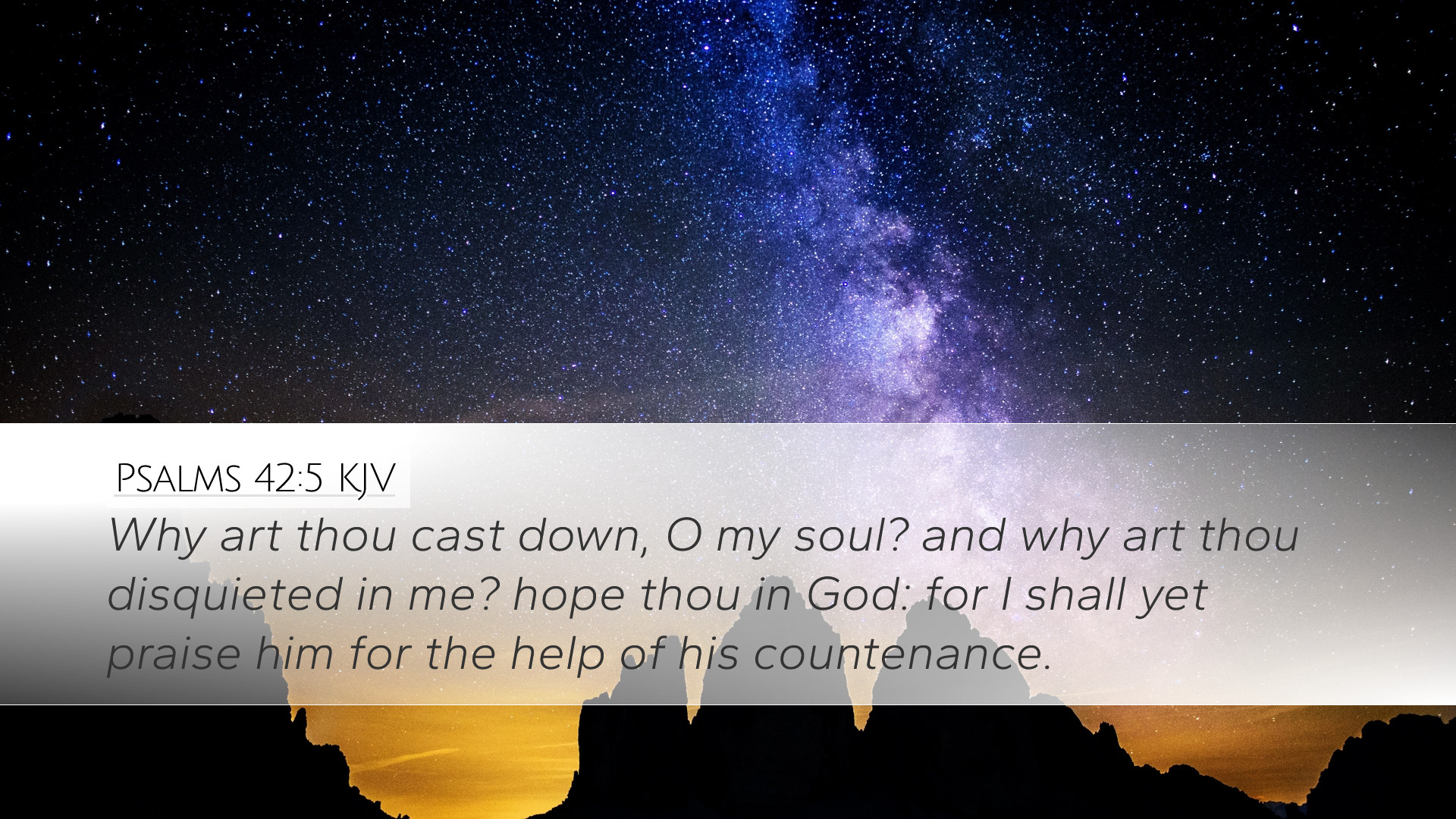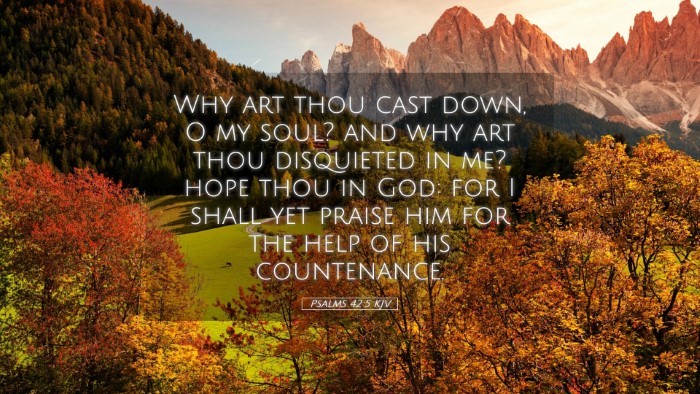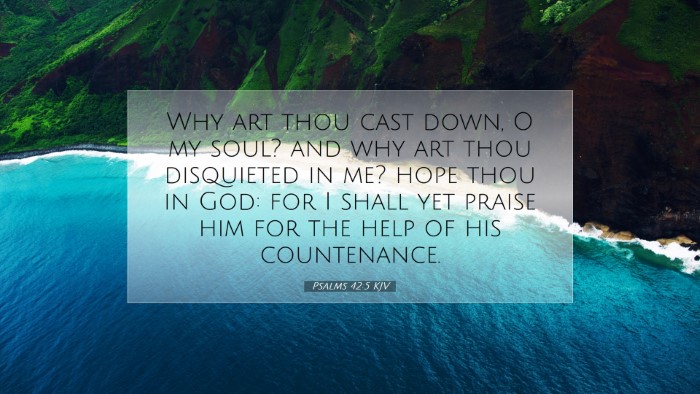Summary of Psalm 42:5
"Why art thou cast down, O my soul? and why art thou disquieted in me? hope thou in God: for I shall yet praise him for the help of his countenance."
Contextual Overview
Psalms 42 is often attributed to the sons of Korah and is recognized as a poignant expression of deep yearning for God during times of distress. The psalmist contrasts moments of sorrow with the aspirations of hope and faith, encapsulating a profound conversation with the soul.
Matthew Henry's Commentary Insights
Matthew Henry, in his commentary, emphasizes the internal struggle of the psalmist, highlighting how self-examination leads to feelings of despondency. He notes that the repetition of the phrase "Why art thou cast down?" indicates a deep wrestling with despair.
Henry elucidates that this questioning is essential; it is as though the psalmist is engaging in a dialogue with his own soul. This reflection serves both as an acknowledgment of his current state and as a pathway toward spiritual recovery.
The ultimate reminder comes with the phrase "hope thou in God." Henry underscores that placing one's hope in God signifies a choice, an act of faith that requires intentionality even amidst turmoil.
Albert Barnes' Commentary Insights
Albert Barnes offers a detailed view of the psalmist's emotional state, identifying the despair not merely as a fleeting feeling, but as a significant obstacle to the psalmist's relationship with God. Barnes points out that the term "cast down" refers to a profound sense of defeat, as though the soul is weighed down and unable to rise.
He emphasizes the remedy provided by the psalmist—encouragement to hope in God. This directive is not only an assertion of faith but speaks to the necessity of waiting for God's timing and intervention. Barnes suggests that an acknowledgment of one's feelings is important, yet it must be coupled with an unwavering trust in God’s promises.
Adam Clarke's Commentary Insights
Adam Clarke's approach reflects on the theological implications of hope and despair. He interprets the phrase "disquieted in me" as indicative of an inner turmoil that can disrupt spiritual welfare. Clarke attributes this to the trials faced by the faithful and how such trials can create a schism in one's relationship with God.
Clarke highlights that hope in God is an active and deliberate response to despair. His commentary presents hope as a lifeline, urging believers to reaffirm their faith in God’s salvation and goodness. Clarke further explains that "the help of his countenance" can be understood as the presence of God bringing comfort and support in times of trouble.
Theological Reflections
This verse stands as a significant theological reflection on the human condition and the relationship between emotion and faith. The psalmist’s self-reproach serves as a poignant reminder that experiencing doubt or despair is part of the spiritual journey, yet it is coupled with an essential call to refocus one’s hope in God.
- Human Struggle: The need to address and reflect upon our emotional states is paramount. The psalmist’s journey illustrates how acknowledging our despair is the first step toward restoration.
- Active Hope: Faith in God is not a passive experience. Instead, the psalmist's admonition to "hope thou in God" is an exhortation to actively place trust in the divine amidst life's uncertainties.
- The Role of Community: This psalm has often been reflective of communal lament. Although it is written in the first person singular, it resonates with collective despair, suggesting shared experiences among believers that unite them in their longing for God's presence.
Conclusion
Psalm 42:5 encompasses a rich tapestry of human emotion, spirituality, and the enduring call to hope in God. Through the insights drawn from Matthew Henry, Albert Barnes, and Adam Clarke, we grasp a multifaceted understanding of the text, one that encourages believers to face their struggles while remaining anchored in faith.
For pastors, students, theologians, and scholars, this verse challenges us to dive deeper into the complexities of our emotional landscapes, fostering a faith that is robust enough to endure in times of challenge, and a hope that ultimately leads to praise for the unfailing goodness of God.


